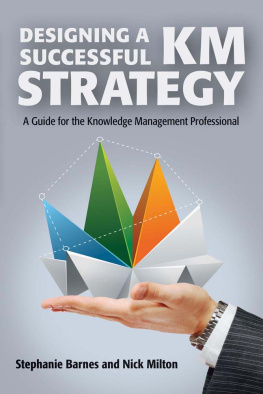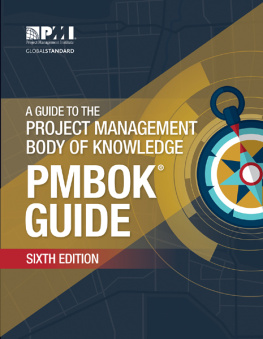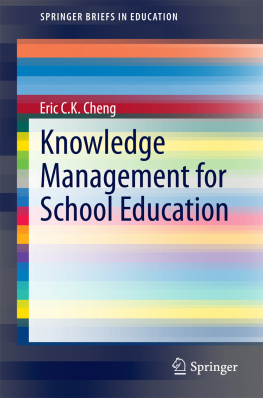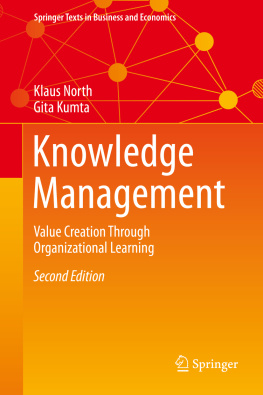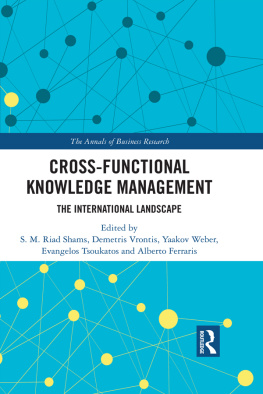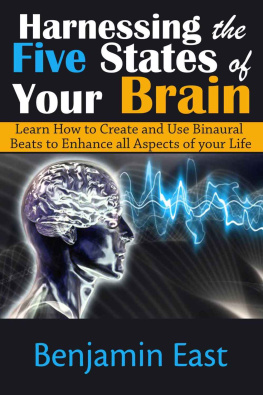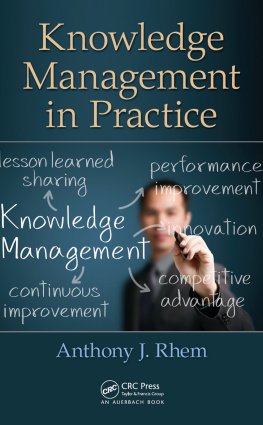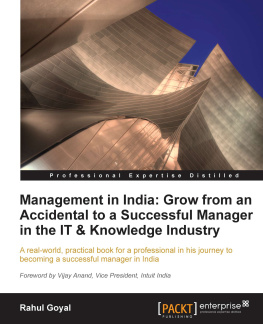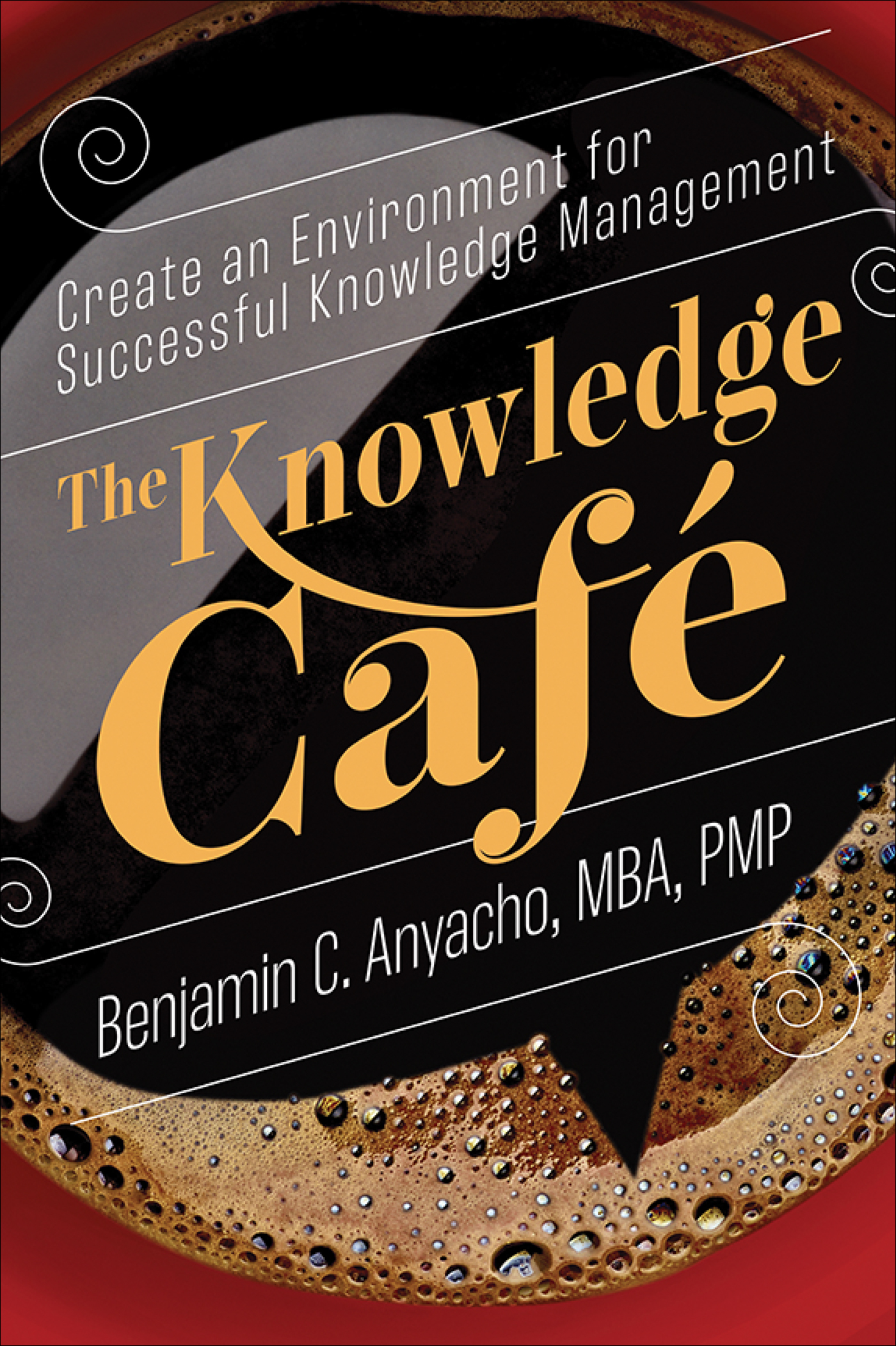THE
KNOWLEDGE
CAF

The Knowledge Caf
Copyright 2021 by Benjamin C. Anyacho
All rights reserved. No part of this publication may be reproduced, distributed, or transmitted in any form or by any means, including photocopying, recording, or other electronic or mechanical methods, without the prior written permission of the publisher, except in the case of brief quotations embodied in critical reviews and certain other noncommercial uses permitted by copyright law. For permission requests, write to the publisher, addressed Attention: Permissions Coordinator, at the address below.

| Berrett-Koehler Publishers, Inc.
1333 Broadway, Suite 1000
Oakland, CA 94612-1921
Tel: (510) 817-2277, Fax: (510) 817-2278
www.bkconnection.com |
Ordering information for print editions
Quantity sales. Special discounts are available on quantity purchases by corporations, associations, and others. For details, contact the Special Sales Department at the Berrett-Koehler address above.
Individual sales. Berrett-Koehler publications are available through most bookstores. They can also be ordered directly from Berrett-Koehler: Tel: (800) 929-2929; Fax: (802) 864-7626; www.bkconnection.com
Orders for college textbook/course adoption use. Please contact Berrett-Koehler: Tel: (800) 929-2929; Fax: (802) 864-7626.
Distributed to the U.S. trade and internationally by Penguin Random House Publisher Services.
Berrett-Koehler and the BK logo are registered trademarks of Berrett-Koehler Publishers, Inc.
First Edition
Paperback print edition ISBN 978-1-5230-8951-2
PDF e-book ISBN 978-1-5230-8952-9
IDPF e-book ISBN 978-1-5230-8953-6
Digital audio ISBN 978-1-5230-8954-3
2021-1
Book production by Westchester Publishing Services
Cover design by Jimmy Chan
Dedicated to all project managers and knowledge managers around the world.
Contents
Preface
My dad, Isaiah Anyacho Njoku, was a carpenter, a spiritual man with strong leadership skills. My mom still tells me about his shrewd knowledge today, around 50 years after his passing.
His carpentry was not the most sophisticated, but all of his works have a remarkably unique signature, witnessed in every door and every chair crafted by his capable hands. His pieces stirred my imagination and curiosity for knowledge transfer. One of my greatest regrets was not having the opportunity to cross-fertilize ideas, learn, and share knowledge with him because I was a baby when he passed on.
Like everyone on the planet, my father didnt have control over his death. But, he most definitely had control over his knowledge.
Grasping this awareness inspired me to make knowledge exchange or transfer one of my careers ethos (driving forces), and Ive been walking on air since I came to this realization. I have set my face like a flint to share that all knowledge is useless if it goes to the grave unshared. In fact, most of the concepts Im sharing in this book are what I have done or am currently doing daily. Knowledge must be managed and transferred to others like a priceless legacyand live! In the most simplistic terms, shouldnt knowledge exchange be like a fatherson relationship, nonthreatening and congenial? Sure, journals and notes may be concise. However, what would you say if someone asked, Do you want to read a book about Scotland, or would you prefer to meet someone from Scotland?
A few conversations are best in a formal setting; the rest are possible in a caf!
Managing knowledge begins with curiosity within human interactions, rather than being driven by process or technology. As important as technology is in knowledge management (KM), it would be useless without people and the right culture accelerators. Technology like AI should be given a seat at the tableand be managed as a stakeholder, because machine learning and AI will play a prominent role in the next knowledge-centric organization and human-machine collaborations will be key. People and conversation shall be the chief in all knowledge management and stewardship.
My emphasis shall rest on two cardinal points: simplicity and people side of KM enabler while recognizing process, technology, and content management enablers. Caf conversation and mindset sit at the center of KM enablers. Human interaction is key in KM; conversation is king. The Knowledge Caf paradigm is the peoples side and environment, with little emphasis on other enablers. The Knowledge Caf mindset is an attitude of knowledge exchange or management that could be structured, but mostly unstructured, agile, and conversational.
In fact, some of the simplest ways to stir knowledge in an organization are to minimize knowledge transfer hierarchical structurescreate Knowledge Cafs, pool and share every knowledge workers knowledge, and incentivize folks for sharing their knowledge.
The Knowledge Caf construct is learning agile in knowledge management. The caf can be a virtual or face-to-face gateway for conversation, knowledge transfer, and knowledge exchange. It fills our desire to connect and communicate with others and transcends IT tools, repositories, and complicated processes. Knowledge management is the responsibility of us alland most importantly, people rather than machines. A caf may be a one-off or a continuous event.
Two fundamental questions must be asked and answered about knowledge management: Why is it needed? and How can an organization cultivate an environment in which it will thrive? Caf is all about asking questions.
To successfully answer these questions, you must first accept the uncomfortable truth that people cannot be forced to share their knowledge. Or better put: knowledge is value and people need an incentive to exchange it. To overcome this challenge or fear, an organization must build, espouse, and support an ecosystem in which all workplace stakeholders are invited to share their experience, skill, and wisdom joyfully. This will intentionally promote within the culture that knowledge transfer is welcomed and embedded into the organizations culture.
When knowledge transfer is intentional, regularly implemented, and encouraged at every organization level, people take pride in transferring their professional knowledge. Knowledge is the principal capital of knowledge workersall employees that think, solve problems with their knowledge, give meaning to information, and apply knowledge. They are the knowledge creators and sharers who champion the cause of knowledge management, thus improving an organizations current practices and future processes. Organizations will experience the benefits of KM as more employees naturally rise to leadership roles and compete to share what they know. Rewarding knowledge exchange and the transfer encourages cultural transparency, increases trust, and reduces the frustration of those who have previously shouldered the bulk of the organizations knowledge transfer and exchange. Practitioners in the Knowledge Caf ecosystem naturally are supposed to share their knowledge and have fun doing it. Aha! moments happen at the caf.
Knowledge transfer comes through genuine relationships where knowledge transfer and exchange become reciprocal, iterative, and interactive. A relationship is an incentive for the caf construct.


